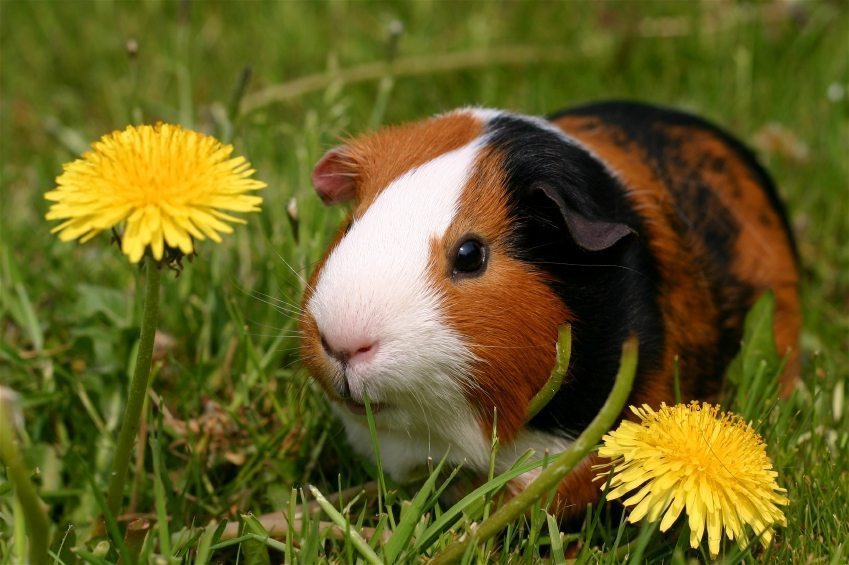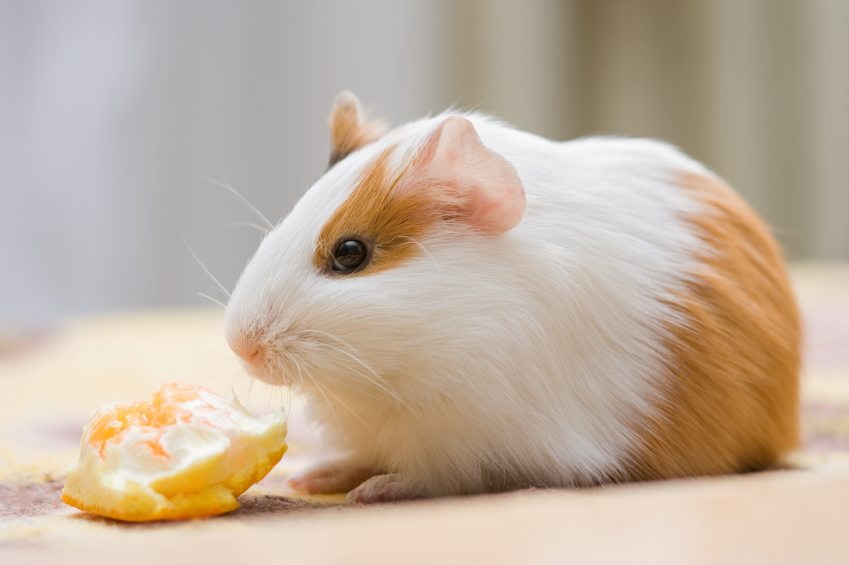
A guinea pig makes an excellent pet. They can be trained to do some tricks, are friendly, sociable, and like to be held.
A Need to Know Basis
Before you adopt a guinea pig, or any pet, find out about their needs and wants – all the ins and outs of their care – so you can make an informed decision as to whether a guinea pig will be a good fit in your family.
The first thing to know about guinea pigs is that they like company. They like your company and the company of other guinea pigs. Having brothers and sisters is important to a guinea. This is so important that it can affect his well being if there are no others. He will become withdrawn and lose his natural inquisitiveness. He also needs lots of interaction with his human family. Without either of these things, your guinea is very likely to become depressed and stressed. So consider adopting at least two guineas since this is a very important issue. In some countries it is even illegal to adopt just one guinea pig; they must be adopted in pairs!
Guinea pigs need room to roam. Guinea pigs are very energetic. Your guinea pig will need time each day outside the cage to burn off some energy. Set up a space where he can be allowed to run around and play. A room that is pig-proofed by keeping all things that can be chewed out of reach, including power cords and furniture legs, is ideal. You can also set up a pen to confine them in while they are out. Make sure your guinea is supervised when outside the cage.
Food for a Pig
Another important aspect of any animal’s care is knowing about and providing the proper diet. The biggest part of a guinea’s diet should be hay. There are several types of hay that guinea’s will eat, such as timothy hay and oat grass. Food should be changed out daily to keep it fresh. Three or four times a week offer your guinea fresh greens, like kale or collards and other vegetables, such as carrots and zucchini.
Your guinea should have access to fresh water at all times. Ensure that he has enough and replenish daily. If using a water bottle, make sure it is made for guineas. One with a ball in the end is best. If using a bowl, ensure that it is low enough for your guinea to reach the water with his paws on the rim. Guinea pigs can easily drown in a bowl that is too deep.

Home Sweet Home
Guinea pigs need lots of room to explore; therefore, the bigger the cage, the better for your guinea. For two guinea pigs, a minimum of 10 square feet is optimal, but again, bigger is better. Place the cage in a place that is free from direct sunlight and drafts, but be sure to keep your cage in a location that is frequented by the family, such as a living or bedroom so your guineas can see and hear you. This contributes to the social time they need.
Pine shavings are commonly used for animal bedding, but it should not be used in your guinea’s house. The best bedding for a guinea pig is paper litter. Your pig will need a 2 to 3 inch depth to burrow into comfortably and to absorb waste properly. Although guinea pigs have been kept outside in a hutch like rabbits, being inside is recommended. They can be negatively affected by extremes in heat and cold, and they also do not generally get the attention they need from you when they are not inside.
A guinea pigs needs are simple for the most part, but attention to the details is very important. If you decide a guinea is for you, you will enjoy the benefit of a wonderful, loving pet.
Photo Credit: istockphoto.com









